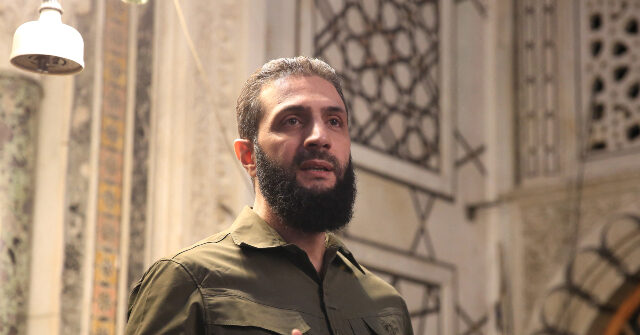In a landmark interview with Sky News on Wednesday, Syrian rebel leader Abu Mohammad al-Jolani, now requesting to be addressed as Ahmed al-Sharaa, articulated his vision for post-Assad Syria. This marked his first engagement with Western media since the overthrow of dictator Bashar Assad, which he claims as a pivotal moment for the country. Al-Jolani distanced himself from his past, asserting that he and his forces have abandoned terrorism, and are committed to establishing a more inclusive, free Syria. However, skepticism prevails among analysts and observers familiar with his history as an al-Qaeda commander, casting doubts on his transformed narrative and intentions.
Al-Jolani’s backstory reveals a dramatic shift from his origins as a medical student in a privileged family in Damascus. He adopted the alias “al-Jolani,” symbolizing his allegiance to the Golan Heights, which have remained under Israeli control since the 1967 Six-Day War. His descent into extremism was sparked by his involvement with al-Qaeda in Iraq, where he participated in violence against American forces. Following imprisonment, he returned to Syria and led the al-Nusra Front, an al-Qaeda affiliate that later rebranded to Hayat Tahrir al-Sham (HTS), ostensibly signaling a focus on local rather than global jihadist goals. This transformation was partly catalyzed by the emergence of ISIS, as al-Jolani and his followers sought to distinguish themselves from ISIS’s brutal tactics and ideology.
In 2016, al-Jolani claimed to have severed ties with al-Qaeda, aiming to cultivate a more respectable image among Syrian citizens and the international community. Despite these efforts, HTS remains labeled as a terrorist organization in the eyes of many Western countries, with the U.S. designating al-Jolani as a terrorist in 2013 and placing a subsequent bounty on his head. HTS also attempted to gain legitimacy through the establishment of the Syrian Salvation Government in 2017, though critics argue that its governance has been authoritarian and heavily Islamist, akin to that of Assad’s regime, marred with human rights violations, including torture and arbitrary detentions.
During the Sky News interview, al-Jolani attempted to recast his image as a proponent of a “moderate jihad,” committed to rebuilding the war-torn country and advocating for the rights of religious minorities. He emphasized the need for reconstruction and stabilization in Syria, positioning his forces as a necessary shield against perceived threats from the Assad regime and allied militias such as Hezbollah and Iranian forces. He conveyed an optimistic vision of a future where Syrians could move towards development and stability, claiming that the desire for peace has exhausted the populace from continuing conflict. Al-Jolani’s assertions, however, were met with caution and skepticism regarding their feasibility and sincerity.
Experts analyzing al-Jolani’s claims express doubt about the practicality of his vision. Analysts like Hussain Abdul-Hussain have pointed out the dire conditions in Syria, including economic collapse and widespread poverty, indicating that while al-Jolani may be saying the right things, the reality on the ground could force him to revert to more extremist methods. Similarly, Shiraz Maher warned against viewing al-Jolani’s rhetoric as a genuine transformation, predicting that his governance might resemble a “Taliban-lite” model that prioritizes Islamist governance over secular, democratic reforms. Concerns also persist about al-Jolani’s authoritarian tendencies, suggesting that his rebranding efforts may not reflect a substantial ideological shift.
The conflict in Syria has created a complex landscape in which the aspirations for a free and democratic society clash with entrenched authoritarian practices and extremist ideologies. As al-Jolani seeks to position himself as a leader of a new Syrian order, the international community remains cautious, grappling with the implications of supporting a figure with a notorious background and questionable governance history. The road ahead for Syria is fraught with challenges, as al-Jolani’s past and the realities of a war-torn nation will significantly influence both his leadership and the lives of millions yearning for stability and peace.

